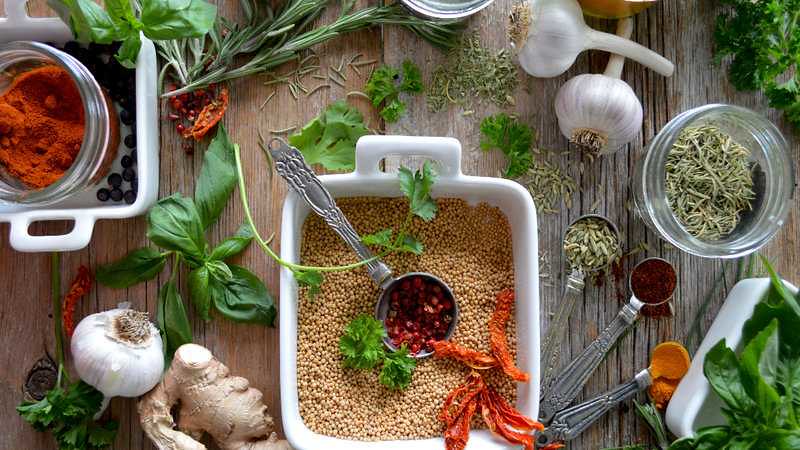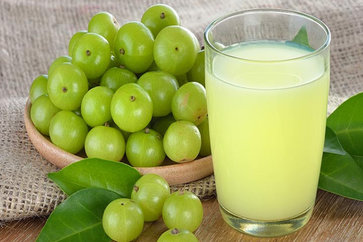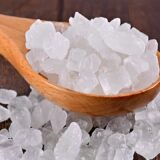How To Reduce Inflammation? These 7 Ayurvedic Herbs Are The Best
Anti Inflammatory Herbs are used popularly as herbal medicines for the cure of inflammation ailments such as active hepatitis, rheumatoid arthritis, tuberculosis, asthma, etc.

Inflammation is a situation where a particular part of the body is inflamed due to different infections. When there is inflammation of the body, our body’s immune system reacts to infection, irritation, or unusual injury and the body attempts to initiate the healing process.
We cannot say that inflammation is a contagion, even in cases wherever inflammation is actually caused by an infection. In simple terms, infection is generated due to an exogenous pathogen, and inflammation is one of the ways to encounter or fight this pathogen.
Which induces symptoms like warmth, redness, and swelling of the skin, and pain. At times, it can be very uneasy and painful but then without inflammation. Infections and wounds would never heal.
Applying natural remedies or natural herbs is the finest way to treat inflammation rather than using chemical drugs to stamp out the symptoms. There are many herbs that are used for anti-inflammatory.
The basic idea is the specific herbs play a crucial role in helping the body to deal with inflammation. There is no therapeutic without circulation. So, as inflammation is principally a symptom of the body getting to work at healing or dealing with itself
The foremost remedy that can be used is naturally alleviated inflammation to better circulation to the infected area in the best potential way. A mild relaxing oil or ointment is not sufficient enough to work on serious inflammation.
Anti-Inflammatory Herbs and Supplements
Below you will come with a list of a few of the most trusty and most approachable anti-inflammatory herbs. These herbs when respectably taken will benefit you to deal with chronic inflammation anywhere in your body.
These herbs poss anti-inflammatory or antiphlogistic qualities. Herbs can be used as the unique therapy in autoimmune sickness.
1. Holy Basil
Basil is a plant native to India also known as holy basil or tulsi not only performs an important role in Ayurveda, it’s also respected by worshipers as a sign of a god.
Customarily, this herb is used in cooking and moreover, as a medicine to deal with flu sore throat, and cold. Holy basil oil is found to hold antioxidant, anti-inflammatory
The other curative properties that are advantageous for radiation poisoning, high cholesterol, diabetes, arthritis, peptic ulcers as well as in chemotherapy.[1]
2. Aloe Vera Juice
Aloe vera is well-known for its healing wounds and soothing skin burns. Aloe vera‘s anti-inflammatory properties internally work as successfully.
Aloe vera when eaten cools inflammation in the digestive region, helps in the case of peptic ulcers, and it may also be advantageous for other inflammatory circumstances.
In Ayurveda, aloe vera is prescribed when there’s excessive heat in the liver. Aloe vera gel can be eaten internally or used topically to treat different skin irritations such as acne, psoriasis, and burns.
The juice acquired from the gel is also an in-demand detoxification refreshment.[2]
3. Guggul
Guggul is generally used as a detoxification herb in Ayurveda. The resin hidden by the guggul tree is found to contain cholesterol-lowering and anti-inflammatory effects similar to commercial drugs such as clofibrate and ibuprofen in various studies.
It may also be effective in easing pains due to rheumatoid arthritis and fibromyalgia. Guggul can be found in their raw forms as resins and gums, and in fine particles, tablets, and pills.
As with somewhat another medicinal herb, refer to a well-informed herbalist or doctor before self-medicating. Guggul has blood-thinning effects and hence, must not be used jointly with other medicaments that reduce blood platelet aggregation.[3]
4. Boswellia
Boswellia is also known as Indian frankincense or Salai, Boswellia is conventionally used to treat digestive, arthritis, and respiratory problems characteristics. New studies have now advocated these uses.
Amalgamations in Boswellia called boswellic acids are very useful and work as an anti-inflammatory. These acids were found to turn off the structure of enzymes that can cause inflammatory disorders such as ulcerative colitis, rheumatoid arthritis, bronchial asthma, and Crohn’s disease.
Boswellia is usually available in tablets and pills. Even though toxicity related to this anti-inflammatory herb is uncommon, obey the dosage recommendation on the bottle to safeguard.[4]
5. Neem Oil
In India neem tree is known as the ‘Divine Tree’, neem oil is used in Ayurvedic treatment to smooth inflammatory skin conditions, muscle aches, and joint pains.
Extracts of neem leaves and seeds have been proven as anti-diabetic,anti-viral properties, anti-fungal, and antibacterial in various studies.
All portions of this amazing tree can be used for medication. Neem flowers and shoots are eaten as vegetables in India, while the leaves are supplemented to foods as a flavoring to impart a unique bitter taste.
Neem oil can as well be applied topically to treat skin furies, and spattered on plants to control pests.[5]
6. Licorice
licorice is a well-known herb for anti-inflammation. The sweet root of this plant is usually used to make confections.
Healing- wise, the strong anti-inflammatory compounds found in licorice root have been found to be capable against, peptic ulcers, mouth ulcers, colds, coughs, and even chronic hepatitis infection.
Licorice is available as chopped roots, which can be boiled as tea and also in powder and pill forms. Taking in too many licorice roots can lead to high blood pressure. So use this herb with care and under the care of a trained health-care provider.[6]
7.Gotu Kola
Gotu Kola is a basic of Indian Ayurvedic medication where it has taken as a tea during meditation customs to increase psychic reactivity and perform a higher state of spiritual being.
Gotu kola has anti-inflammatory properties that can relieve the healing of conditions like arthritis. Gotu Kota has been proven to stimulate the circulative system and help blood vessels and capillary tubes.
With this extra outlying circulation and oxygen carried to the brain. It aids memory, rectifies learning ability, and raises attention span and denseness.
Gotu Kola also carries cholesterol from the blood, lowering blood pressure and the probability of heart disease. Some took it formerly to reduce the chance of blood clotting and Deep-Vein Thrombosis.[7]


























Since eczema can produce raw skin, topical ointments are sometimes not preferred, and if there is in children they can burn very badly. Herbs such as oregano grape root and grapeseed extract orally, have anti-inflammatory properties that will detoxify your body, as well as control your eczema.